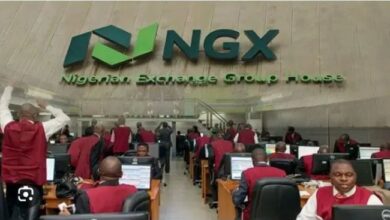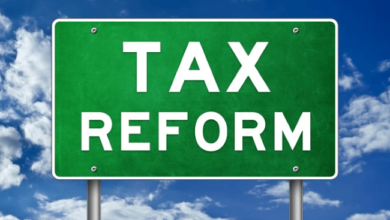Bridging the Digital Divide: NCC, Industry Leaders Chart Path to Rural Connectivity

Nigeria’s digital transformation story is at a critical crossroads. Despite years of investment and policy reforms, broadband penetration stood at just 48.81% as of August 2025, leaving millions of Nigerians—mostly in rural areas—disconnected from the opportunities of the digital economy.
At the Rural Connectivity Summit 2025 held in Lagos, the Nigerian Communications Commission (NCC) and industry experts sounded a collective call to action: bridging Nigeria’s digital divide must now move from rhetoric to measurable impact.
Themed “Rethinking Digital Connectivity to Unlock Rural Economic Potentials,” the summit gathered telecom regulators, infrastructure investors, and digital economy advocates to examine new models for connecting underserved communities.
Broadband Gaps and Economic Costs
Delivering the keynote address, Dr. Aminu Maida, Executive Vice Chairman of NCC, revealed that while urban broadband access in Nigeria stands at 57%, rural connectivity lags behind at just 23%—a stark digital divide threatening the nation’s inclusive growth ambitions.
Represented by Mr. Tunji Jimoh, the NCC Lagos Controller, Maida explained that a 10% increase in broadband penetration can raise GDP by 1.38%, underscoring the transformative potential of digital access.
“Over 45% of Nigeria’s population lives in rural areas, yet they remain systematically excluded from the opportunities of broadband and digital access,” Maida said.
“Connectivity is not measured in megabits per second but in economic value—education, healthcare, productivity, and innovation.”
According to the International Telecommunication Union (ITU) ICT Development Index (IDI) 2025, Nigeria ranks 137th out of 164 countries with a score of 52.9, up from 46.9 in 2024—a modest improvement but still well below expectations given the scale of investment.
NCC’s Strategy: From Policy to Impact
Dr. Maida reaffirmed NCC’s commitment to bridging the urban-rural connectivity gap through targeted regulation, infrastructure incentives, and stakeholder collaboration.
A key driver in this effort is the Universal Service Provision Fund (USPF), designed to finance digital access in unserved and underserved regions. In addition, the Commission has introduced the Nigeria Digital Connectivity Index (NDCI)—an annual scorecard launched on October 9, 2025—to measure each state’s progress toward digital readiness and accountability.
The NCC boss also decried persistent infrastructure sabotage undermining broadband rollout, citing over 19,384 fibre cuts, 3,241 equipment thefts, and 19,000 denials of access to telecom sites between January and August 2025.
To address this, the Commission is enforcing the Critical National Information Infrastructure (CNII) Presidential Order, signed in June 2024, to empower law enforcement against vandalism and telecom asset attacks.
Maida called on state governments to adopt Zero Right of Way (RoW) policies, reduce bureaucratic barriers, and treat telecom infrastructure as a “bridge between backwardness and global relevance.”
Industry Voices: From Discussion to Action
Mr. Tony Emoekpere, President of the Association of Telecommunication Companies of Nigeria (ATCON), stressed that rural connectivity is not a luxury—it is a national economic imperative.
“We all understand the impact broadband brings when it reaches a community. It transforms businesses, schools, and health centres,” he said.
“It’s time to move beyond talk shops into action. We must leave this summit with clear, actionable points and identified drivers.”
Echoing this, Dr. Tola Yusuf, Co-founder of Infratel Africa, described digital connectivity as “the backbone of rural prosperity”, adding that success depends on creating the right incentive structure for private investment.
“Technology exists, investors are ready, and the opportunities are clear,” Yusuf noted. “What’s needed is a coordinated incentive framework that rewards long-term rural infrastructure development.”
A National Call to Connect the Unconnected
Convener of the summit, Omobayo Azeez, underscored that over 20 million Nigerians still live without any form of connectivity, cutting them off from essential services and the digital economy.
“That number is not just a statistic,” Azeez emphasized. “It represents farmers, teachers, health workers, and small business owners—real people whose futures depend on access to information and opportunity.”
He noted that the technologies and expertise to close the gap already exist—what is missing is policy consistency, political will, and coordinated execution.
“Rural connectivity must become a deliberate national priority, not an afterthought in our development agenda,” Azeez said. “Connectivity is not just about cables or towers—it’s about access to education, healthcare, markets, and governance.”
The Road to 70% Broadband by 2025
Nigeria’s National Broadband Plan (NBP) 2020–2025 targets 70% broadband penetration by the end of 2025—an ambitious goal that will require aggressive investment and stakeholder collaboration in the final stretch.
The message from the Lagos summit was clear: the digital divide is not a technical gap—it’s an economic emergency. The cost of inaction is measured not just in data speed, but in lost jobs, excluded communities, and unrealized national potential.
If Nigeria succeeds in achieving inclusive connectivity, experts say it could unlock billions in rural productivity, reduce inequality, and position the nation as Africa’s leading digital economy.











